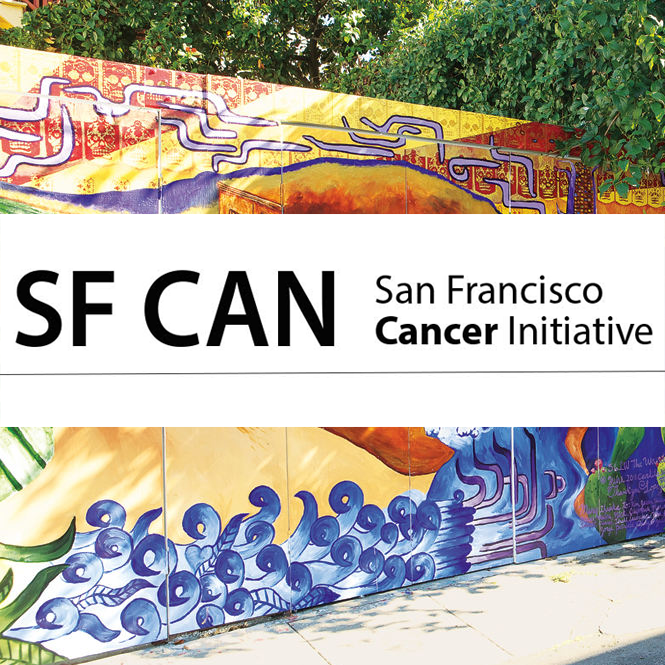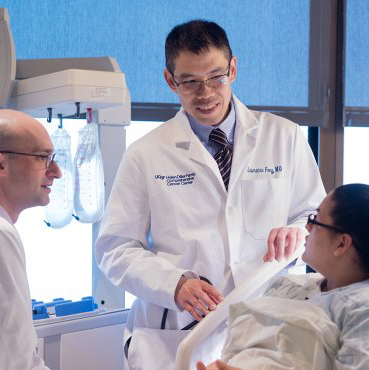The San Francisco Cancer Initiative (SF CAN), is the first public-private cancer plan for a major city. SF CAN, in partnership with the City and County of San Francisco and other health and community partners, is using interventional strategies to reduce cancer in the city. The HDFCCC conceived of and helps support SF CAN.
The Cancer Center is host to a variety of key initiatives in promotion of public health, population science, and the advancement of clinical research findings.
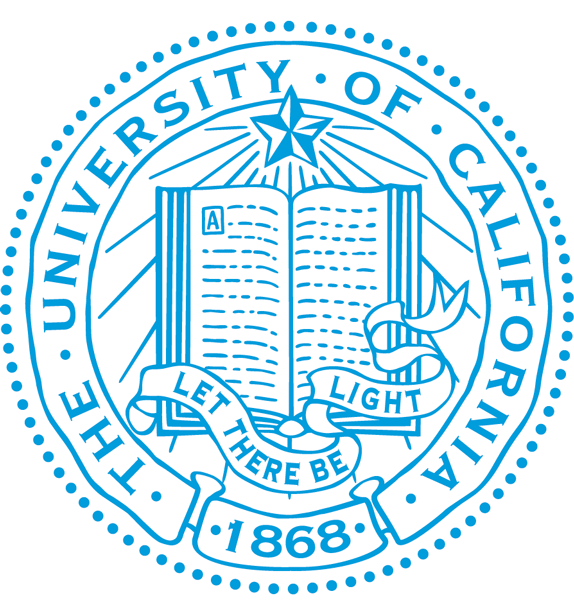
UC Cancer Centers Consortium
The Consortium is a partnership between the five UC cancer centers with NCI designation. It will harness the strengths of all five of the state’s leading cancer centers to expand research and improve care.
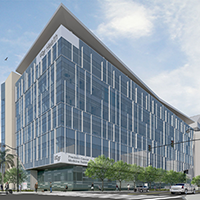
Bakar Precision Cancer Medicine Building
Now open, the UCSF Bakar Precision Cancer Medicine Building sets a new standard for cancer care and research in the Bay Area. By bringing together researchers, clinicians and supportive care in one building, we are revolutionizing cancer care and providing patients with the latest, most personalized treatments—including immunotherapy, molecular profiling of tumors, and genetic counseling—more rapidly than ever before.
Cancer Immunotherapy Program
The UCSF Cancer Immunotherapy Program (CIP) and Cancer Immunotherapy Clinic (CIC), bring together the collective strength of UCSF’s world-class research facilities, the HDFCCC, and an expert team of UCSF clinicians and investigators to provide access to state-of-the-art cancer immunotherapies, regardless of the type of cancer.
Center for BRCA Research
The Center is one of only two hereditary cancer clinics in the US and the only one on the West Coast for people with hereditary gene mutations in BRCA1 and BRCA2. These mutations are widely recognized as inheritable causes of breast and ovarian cancers. They also increase risk for pancreas and prostate cancers, as well as melanoma.
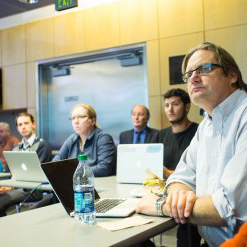
Molecular Oncology Initiative (MOI)
The MOI integrates molecular information found in most tumors with the growing number of drugs being developed for specific types of cancer. The team uses the pioneering UCSF 500 gene panel to find mutations in tumors that particular medicines can attack.
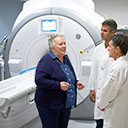
Precision Imaging for Cancer and Therapy (PICT)
Advanced imaging technology plays an increasingly critical role in cancer research and treatment. The expanded role of PICT helps researchers understand the biology and behavior of different cancers to develop and refine effective treatment approaches.

Global Cancer Program
Aiming to reduce cancer worldwide, the Global Cancer Program harnesses UCSF’s impressive history of global health research to address cancer’s devastating effects in low- and middle income countries. Approaches include basic, translational, and clinical research; educating and training practitioners in other countries; and fostering collaborations between UCSF and healthcare providers around the world.
